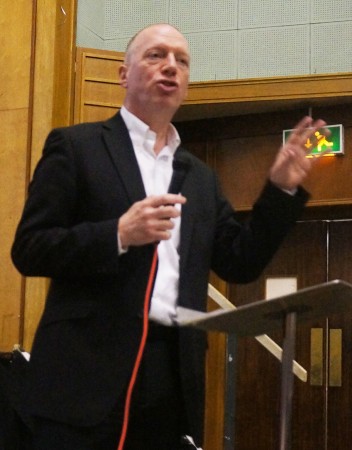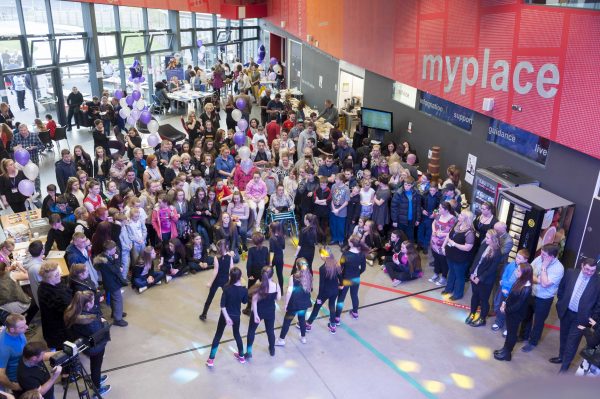How can we build an economy for people, not profit? It can be done from the bottom up, as new businesses are set up; and it can emerge through transformation of existing private businesses, many of which already recognise the strong social benefit of trading but don’t yet self-identify or promote themselves as social businesses.
But what about those organisations or services currently in public ownership, which are expected either to be closed down or transferred into some sort of private ownership? Or recently “spun-out” public services, currently struggling to find their new identity after a process which left them insufficient time to think it through previously, or time to allow staff, users and local communities to have a voice or play an appropriate role?
Does the co-operative sector have a vision, even an ambition for a co-operative or democratic approach to public ownership: something “owned by people and for people”?
Writing in the Observer in 1917, the author of the Labour Party’s constitution explained that his use of the phrase common ownership in the old clause 4 intended to encompass everything “from the co-operative store to the nationalised railway”. Sidney Webb clearly had a broad or pluralistic understanding of common ownership, and his intention was to include any such approach to democratic or people-based ownership and governance as was appropriate in the circumstances.
We should not be surprised at this; before the state assumed responsibility for the health, education and welfare of citizens, such needs were being partially met by citizens themselves – whether through the self-help mechanisms devised by mutuals,
or the voluntary, faith-based and charitable organisations established and supported by the philanthropic sector. The post-war settlement did not create public services: it brought them into state ownership, and changed the funding to one of central taxation.

Today’s narrow equating of public with state ownership tends not only to limit current thinking; it also ignores 150 years of history: of citizens themselves striving to ensure that their own/ their family’s/their community’s basic needs are met, and that the disadvantage and unfairness inevitably born of industrialisation should be alleviated. Socialism at its best strove to ensure that those brilliant services which were then only available on something of a patchwork basis should be universally available.
As the historic public sector is now being comprehensively dismantled through closure or privatisation, a new approach to public ownership is needed. If the state is no longer to be the custodian of the public good, who is?
Whilst many services were spun-out of state control under the Coalition Government as so-called “public service mutuals”, sadly many if not most of them now show little evidence of public or common ownership and control. However, there have been a number of other interesting projects which are much more promising pioneers of a new or co-operative approach to public ownership.
It needs to be said from the start that these projects did not originate as a change of ownership or legal structure; nor were they established by politicians (though politicians played a vital enabling role).
They are all examples of where imaginative workers, users and communities, guided by clear-sighted leaders, set out to do something different: to approach their area of service in a radically new way, as a partnership between those receiving the service, those working to provide it and the community benefiting from it; to further build those collaborative relationships with a view to optimising the value of scarce funds and resources; to get away from the more traditional, binary, done-to or consumer approach to public services, and to move towards something based on shared responsibility, shared ownership, and shared problem-solving.

These developments have arisen in social housing through the coming together of tenants, employees and community (Rochdale Boroughwide Housing); in community care services through the dedication of care workers and the support of local community (Care Plus Group); in youth services through the joint efforts of young people, volunteers and youth workers enabled by their council (Knowsley Youth Mutual); and in leisure services through the workers and community combining (Salford Community Leisure).
In each case, two or more constituencies of members including users and workers, elect representatives who monitor and help to shape but do not manage the delivery of services; those services are professionally managed by a board selected for its competence and independence, who are directly accountable to elected representatives who appoint and can remove the majority of them. These organisations are all committed to operating for the common good, and not for private benefit; assets are securely held (locked) for the benefit of current and future generations; and surpluses are “retained and recycled to achieve the local public objectives.
Co-operators might comment that surpluses are not shared with members; though this reflects the fact that users are not generally paying for services, so a co-operative equating dividend intended to arrive at a fair price is not necessary or appropriate. Instead, surpluses are retained for the benefit of all members of the community served.
Co-operators might also observe that elected representatives are not constitutionally in charge of the business; though their elected representatives appoint and can remove a majority of the board, shape the forward plans with the board, and monitor the ongoing delivery of those plans.
Crucially, this approach results in the public owning local services as members. It is a form of ownership that they hold on trust for themselves and future generations. They cannot sell it for cash; but they can guard and protect it against those who might be inclined to wrest ownership away for them and use it for some purpose other than that of benefiting the local community.
This is the future: ownership by the people, for the people.
Read more:
- Mutuals providing public services – Trojan horse for privatisation?
- All of our coverage from the Ways Forward conference can be found here.